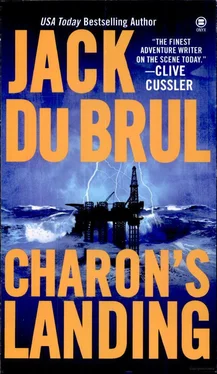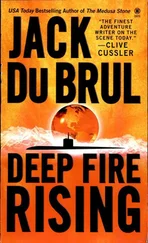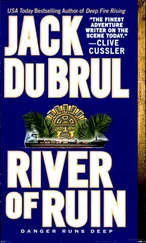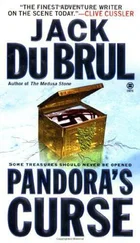Jack Du Brul - Charon's landing
Здесь есть возможность читать онлайн «Jack Du Brul - Charon's landing» весь текст электронной книги совершенно бесплатно (целиком полную версию без сокращений). В некоторых случаях можно слушать аудио, скачать через торрент в формате fb2 и присутствует краткое содержание. Жанр: Триллер, на английском языке. Описание произведения, (предисловие) а так же отзывы посетителей доступны на портале библиотеки ЛибКат.
- Название:Charon's landing
- Автор:
- Жанр:
- Год:неизвестен
- ISBN:нет данных
- Рейтинг книги:5 / 5. Голосов: 1
-
Избранное:Добавить в избранное
- Отзывы:
-
Ваша оценка:
- 100
- 1
- 2
- 3
- 4
- 5
Charon's landing: краткое содержание, описание и аннотация
Предлагаем к чтению аннотацию, описание, краткое содержание или предисловие (зависит от того, что написал сам автор книги «Charon's landing»). Если вы не нашли необходимую информацию о книге — напишите в комментариях, мы постараемся отыскать её.
Charon's landing — читать онлайн бесплатно полную книгу (весь текст) целиком
Ниже представлен текст книги, разбитый по страницам. Система сохранения места последней прочитанной страницы, позволяет с удобством читать онлайн бесплатно книгу «Charon's landing», без необходимости каждый раз заново искать на чём Вы остановились. Поставьте закладку, и сможете в любой момент перейти на страницу, на которой закончили чтение.
Интервал:
Закладка:
She’d been built for these seas, and despite the seeming violence of the confrontation between ship and sea, she rode them well. Only the larger commercial fishing boats and tankers braved these waters. The endless procession of ferries and cruise ships that sailed to Alaska never strayed from the protection of the Inside Passage, a marine route protected from the ravages of the open ocean by a string of islands that stretched from Vancouver to the Gulf of Alaska.
The tension on the bridge, which was an almost tangible presence, had nothing to do with the deteriorating weather. Since the takeover, every member of the crew regarded the situation with equal doses of fear and expectation, fear for their lives and hope that there would be an opportunity to retake the tanker. When not on duty, the crew was kept in the main mess hall under the watchful eye of at least two guards. Conversations at the long tables were kept to ship’s business and nothing more.
Despite their incredible size, VLCCs are operated with only a tiny crew, twenty ratings and ten officers. And since there were only three key areas that needed monitoring — the engine room, the tank control station, and the bridge — the eight terrorists under JoAnn Riggs’ command could maintain control for as long as necessary.
Riggs sat in the port side Master’s chair, one of the two comfortable seats located on each side of the spacious bridge. Since the takeover, she had sat there braying orders, watching the bridge crew with predatory eyes, and smoking cigarette after cigarette in an unending chain. To her right, a helmsman kept a firm grip on the two levers that acted as the ship’s wheel. When his eyes were not scanning the open horizon, he either studied the digital engine displays or glanced at his new captain. Behind the helmsman, Wolf, the terrorists’ leader, stood against the aft bulkhead, a machine pistol dangling below his crossed arms. Despite his presence, Riggs felt exposed and vulnerable. To hide it, she lashed out at the crew, screaming orders that would normally be spoken in a whisper, forcing them to work extended shifts to repair the damage from the terrorists’ attempt to subdue Lyle Hauser.
JoAnn Riggs was not supposed to be in charge of the supertanker or the terrorists, but due to the misfortune of the ship’s original captain, Harris Albrecht, she found herself in this position. Albrecht should have commanded the ship back to Long Beach and led the terrorist takeover, with JoAnn acting as First Officer. But then he lost a good share of his lower arm and had to be evacuated, forcing Southern Coasting and Lightering to ask Petromax for a replacement because Riggs didn’t have experience in these waters. Riggs had to rework her plan and had intended to use Hauser until the ship was safely away from Alaska, then lock him with the rest of the crew. She would then captain the vessel to their final destination. With Albrecht gone, Riggs’ payment for her involvement had doubled, but she was left as the only officer working with Wolf and his men. The responsibilities were daunting, especially with a crew who were virtual prisoners and many critical systems either off-line or destroyed.
Another wave crashed into the bow a quarter mile away, thick spume rising up nearly to the height of the bridge before slamming back to the deck and racing to the scuppers like a river at full flood. Just as the deck cleared of water, a series of yellow and red warning lights went off all along the control console. An alarm sounded.
Riggs reacted instantly, coming off the chair like a panther. She was at the helmsman’s shoulder before the crewman realized she’d moved.
“What happened?” she snapped, fearing that the wave had stoved in the bow.
“Automatic engine override. The computer shut the main down.”
“Why?”
“I don’t know yet. The diagnostic is still cycling,” the helmsman answered.
Riggs picked up the hand mike for the intercom and dialed the mess hall. “This is Riggs. I want the Chief Engineer and three of his men in the engine room immediately.” She snapped off the button but held the mike in case she needed to issue more orders. “Do we have a fire?”
“Negative. Engine room heat is nominal, and the suppression system hasn’t tripped.”
She looked out the bridge window and was relieved to see that the horizon was clear. Even if they couldn’t get the engine restarted right away, there was little cause for concern. There wasn’t any other shipping in the area, and they had plenty of sea room before the tanker drifted close to shore. Because of the inertia built up by the two hundred thousand tons of oil in her tanks, it would take seventeen miles and about six hours before they came to a stop. After that, they would be at the mercy of the North Pacific.
“Bridge, this is the engine room.” George Patroni, the ship’s engineer, sounded tinny through the onboard intercom. “There’s no emergency. I can have us under way in about an hour, but we’ve got another problem.”
“What is it?” Riggs said, then quickly countered herself. “Belay that. I’m coming down.”
The engine room of the Southern Cross was a towering cavern of steel, aluminum, and copper. The ceiling lofted four stories over the bottom decking and was obscured by the tangled junctures of the countless miles of piping conduits, ductwork, and electric cables that meandered throughout the ship. Though spotlessly clean, the room was permeated with the heavy stench of marine-grade diesel fuel and machine oil. The smell coated everything and clung to the clothing and skin of anyone who entered.
The engine itself was the size of two overland buses laid end to end with two others stacked on top of them. The huge diesel wasn’t running, but there was a palpable feeling of power emanating from it. In a vessel that taxed superlatives to their very limits, the engine suited the ship perfectly. When it was operational, no one could tolerate the deafening roar of the nine-cylinder power plant, but even now, the noise produced by the auxiliary generators and steering gear pumps was just below the pain threshold.
When she stepped off the tranquil elevator at the main engineering level three floors above the bottom deck, JoAnn Riggs was pushed back by the noise as if physically struck. Patroni stood on a catwalk suspended over the molded block head of the engine in a huddled meeting with his assistants. He was built like a fireplug. Wolf had somehow beat Riggs here and watched the engineers from a few paces away, one of his men at his side. Because of the noise, no one was aware of her presence until she tapped Patroni on his hard sloping shoulder.
“Well?” She had to scream into his ear to be heard over the machinery.
Patroni held up a scarred finger, then bade Riggs to follow him.
The walk to the engineering control room was hot and uncomfortable; the smell made her nauseous. Patroni slid open the glass door to the control room and waited until they had all entered before sealing the room again. Through the thick glass enclosure, they had a commanding view of the engine room, but the noise was reduced to a dull rumble by the sound insulation, and the air was fresh thanks to air conditioning.
“Well?” repeated Riggs.
Patroni ignored her for a moment as he studied the countless banks of control consoles that hugged three walls of the room. With each display he checked, he grunted a bit louder and the scowl on his pug face deepened.
“I told you we needed to keep engineering manned at all times. This accident is your fault entirely,” he accused, ignoring the two machine pistols trained on him.
“Just tell me what happened,” Riggs ordered angrily.
“According to the computer logs, there was a buildup of scale on the fuel filter for number-five cylinder. Had someone been in here, it would have been easy to switch over to the backup injector, clean the filter, and reactivate the primary, but me and my staff weren’t here. The filter failed, and the fuel pumped into number five was contaminated. It started running lean. The computer picked it up, but again” — he glared at Riggs — “no one was here. Had the seas been calm we would have felt the engine vibrating as cylinder five started to pre-detonate. As near as I can tell, she was running so lean, she blew the head right off the piston. The computers sensed the presence of that much metal grinding through the machinery and initiated an emergency shutdown.”
Читать дальшеИнтервал:
Закладка:
Похожие книги на «Charon's landing»
Представляем Вашему вниманию похожие книги на «Charon's landing» списком для выбора. Мы отобрали схожую по названию и смыслу литературу в надежде предоставить читателям больше вариантов отыскать новые, интересные, ещё непрочитанные произведения.
Обсуждение, отзывы о книге «Charon's landing» и просто собственные мнения читателей. Оставьте ваши комментарии, напишите, что Вы думаете о произведении, его смысле или главных героях. Укажите что конкретно понравилось, а что нет, и почему Вы так считаете.












